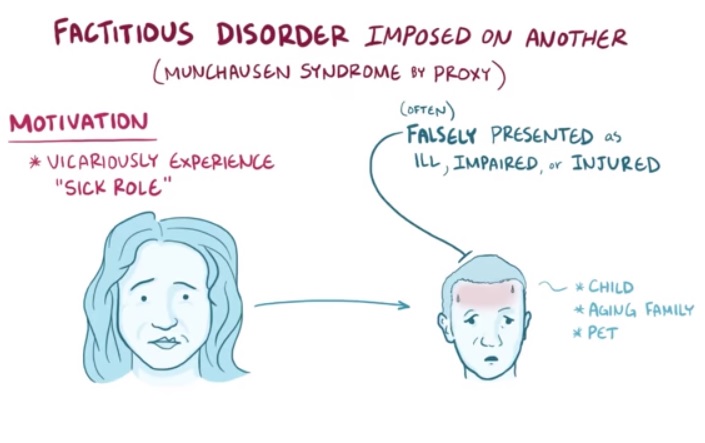Did Baron Mnchausen guarantee that he had had extraordinary experiences, such as a trip to the moon or a cannonball in the battles in which he participated against the Turks, or the visit of the inside of a whale?
Inspired by this eccentric 18th-century character, famous for inventing fantastic adventures, Mnchausen syndrome is a disorder characterized by the creation or pretence of fictional diseases to attract attention, so people with it are able to mutilate themselves. or inject with toxic substances to simulate a disease.
- The motivation of those diagnosed with M nchausen syndrome is purely psychological.
- That is.
- Fantasy is free to assume the role of sick person and thus receive care and care.
- Is a distinctive feature that differentiates it from another similar disorder called simulation.
- Where.
- Although the person claims to be ill.
- He does so to obtain an external benefit.
- Such as billing health insurance or avoiding military service.
Symptoms are constantly simulated or caused in Mnchausen syndrome and can be both physical and psychological, and can also appear anywhere in the body and can be as varied and intense as the person’s imagination and medical knowledge allow.
Let’s look at some of the common symptoms
? Abscess or generalized rash (caused)
? Sputum with blood (due to self-harm to the nose or throat)
? Acute abdominal pain
? Diarrhea or vomiting
? Self-induced bleeding caused by anticoagulant ingestion
? Paralysis
? Symptoms from taking medications or inoculating toxic substances or viruses, such as HIV.
The origin of this curious syndrome usually goes back to the occurrence of certain childhood events, such as frequent and traumatic hospitalizations or the existence of an important link with a doctor, the presence of a basic personality disorder (e. g. narcissism, histrionics, etc. . ) it is also associated with M nchausen syndrome.
The onset of this chronic syndrome usually occurs during a first hospitalization for a real disease, either physical or psychological. Therefore, a person can sometimes develop a real illness, but exaggerate it to get attention.
As the truth always appears, there are clues that make the existence of this disorder suspicious, let’s review these models:
? They are very difficult patients, who do not comply with the treatments, are manipulative and problematic with medical staff and nurses, either for lack of cooperation or because they question everything.
? The presence of a long history of hospitalizations and medical interventions.
? Excessive knowledge of medical terms and protocols
? Symptoms don’t match known diagnoses
? The person does not improve with treatment and gets worse when observed.
Unfortunately, when hospitalization becomes a way of life, there is a deterioration in the condition of the person, which makes it impossible to have job stability or healthy and lasting affective relationships, a sign of this is that visits to the hospital he receives are few or no.
These people, without a doubt, need help to get out of this self-destructive vicious circle, the goal of therapy should be to make them aware of the need for affection that underlies the disorder and teach them to satisfy their emotional needs by themselves. and through healthy and constructive personal relationships.
Image courtesy of Nomad_Soul

